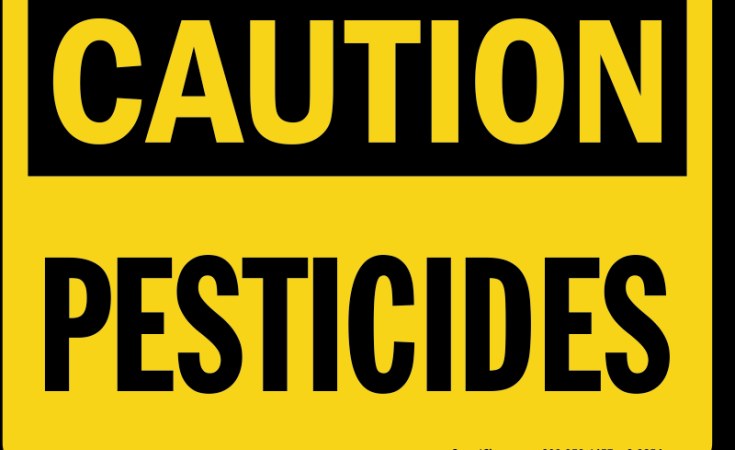This article is supported by CABI.
Many Kenyans are dying as a result of improper pesticide use in agriculture, according to food and agricultural professionals.
The scientists, who gathered for the debate Promoting Food Safety in Kenya: Mitigating Pesticide Risks in Fresh Fruit and Vegetables, organised by CABI (SciDev.Net's parent organisation) were concerned about the entry of banned pesticides into the country.
According to the researchers, even though pesticides are authorised and available to farmers, they may be intrinsically dangerous if used incorrectly.
According to a study published in BMC Public Health, there are approximately 385 million acute pesticide poisoning cases worldwide each year, with 11,000 deaths.
"Pesticides like Sevin used to control mites, fleas, ants, aphids, ticks, and spiders, contain carbaryl that causes neurotoxicity, birth defects, and behaviour disturbances,"Brenda Obura, head of safety, Kenyan Ministry of Health's food
Brendah Obura, public health officer at Kenya's Ministry of Health, stated that the risk linked with application of pesticides has resulted in premature deaths throughout the years.
Pesticides such as Dichlorodiphenyltrichloroethane (DDT) and Lindane, for example, can persist in soil and water for years, and are harmful to life. They also accumulate in the food chain, said Obura.
"Pesticides like Sevin used to control mites, fleas, ants, aphids, ticks, and spiders, contain carbaryl that causes neurotoxicity, birth defects, and behaviour disturbances," she told the debate last month (23 June).
Obura was concerned that pesticides still in use contain chemicals that nations like Kenya and others that ratified the Stockholm Convention of 2001 have banned.
"Gramoxone, used for weed control, contains ingredients like paraquat that can cause kidney damage. Though these chemicals have been banned by Kenya and other countries ... they are still being used by farmers in Kenya," Obura said.
According to Obura, the Kenyan government collaborates with other regulators and the border monitoring team to ensure that whatever enters the nation is safe.
But Dora Kilalo, senior lecturer in the plant science and crop protection department at the University of Nairobi, Kenya, says the current effort by the Kenyan government may not be enough because pesticide misuse is now causing crop losses and, more significantly, death.
She campaigned for increased knowledge among farmers about the dangers of pesticides and the risks that come with exposure, particularly as farmers are the first point of contact with pesticides.
"When possible, use natural means to allow the environment to have its effect," Kilalo advised farmers. "Biorationals, biological controls, and synthetics should only be used as a last resort."
Yetunde Oyeyiola, a lecturer at Ladoke Akintola University of Technology, urged policymakers in Africa to carry out awareness campaigns among farmers on the right use of pesticides. She said policymakers and leaders in Africa must also consciously bring in alternatives to synthetic pesticides, which are dangerous to the ecosystem and farmers.
Wachira Kaguongo, from the National Potato Council of Kenya, agreed.
"Since farmers experience crop loses up to 75 per cent due to misuse and resistance of pesticides, I agree with Oyeyiola that alternative and low-risk crop protection methods, should be introduced," Kaguongo said.
MaryLucy Oronje, senior scientist at CABI, said that CABI and its partners will develop an action plan centred on reducing pesticides risk factors based on recommendations made by stakeholders.
This article is supported by PlantwisePlus, a CABI-led global programme to help countries predict, prevent and prepare themselves for plant health threats - thereby ensuring farmers reduce their crop losses and produce the quantity of food required and also to improve the quality of food grown, in the face of a changing climate. PlantwisePlus is funded by UK Foreign, Commonwealth and Development Office, the Netherlands Directorate-General for International Cooperation, Swiss Agency for Development and Cooperation, and the European Commission (DG INTPA). CABI is an international intergovernmental organisation, and gratefully acknowledges the core financial support from our member countries (and lead organisations). See http:// www. cabi. org/ about-cabi/ who-we-work-with/ key-donors/ for full details.
This piece was produced by SciDev.Net's Sub-Saharan Africa English desk.


